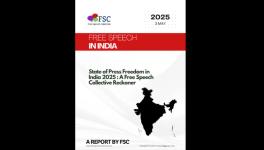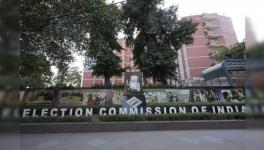Journalists Unions Unite as Concerns Mount over Proposed Broadcasting Bill 2023

File Image
New Delhi: The National Alliance of Journalists (NAJ), the Delhi Union of Journalists (DUJ), and the Andhra Pradesh Working Journalists Federation (APWJF) have joined forces with the Network of Women in Media India (NWMI), the Editors Guild of India, and others to express their serious reservations about the proposed Broadcasting Services (Regulation) Bill 2023.
In a joint statement released today, the NAJ, DUJ, and APWJF expressed their concern that the proposed bill represents a significant step towards expanding undeclared censorship and increasing government control over various media platforms, including TV channels, films, Netflix, Prime Video, YouTube, radio, Instagram, and other social media platforms, as well as news websites and journalists.
Read the full statement below:
Gateway to Censorship ….
Caution and Concern on Proposed Broadcasting Bill 2023
The National Alliance of Journalists (NAJ), the Delhi Union of Journalists (DUJ) and the Andhra Pradesh Working Journalists Federation (APWJF) join the Network of Women in Media India, (NWMI) and the Editors Guild of India and others, in expressing their grave reservations against the proposed Broadcasting Services (Regulation) Bill 2023.
In a joint statement the NAJ, DUJ and APWJF state, that this proposed bill is a further step to expanding a new era of undeclared censorship and increasing government control over all types of media from TV channels, to films, platforms like Netflix and Prime Video, You Tube, radio, even Instagram and other social media platforms as well as news websites and journalists. The Broadcasting Services (Regulation) Bill, 2023 comes on the heels of the Telecom Act of 2023, the Digital Personal Data Protection Act, 2023 and the IT Amendment Rules, 2023.
The Broadcasting Bill blurs the distinction between journalism and content creation. The definition of news and current affair has been deliberately left so broad that all sorts of online media can be controlled through it. It clubs together both broadcast and digital media, although broadcast media includes the big channels while digital news media channels are often small outfits run by one or two persons. Many clauses, particularly those relating to self-censorship, are completely impractical given the nature of small news media. Some dangerous clauses include the power to seize electronic devices including studio equipment. There are apprehensions that the Bill could muffle independent voices including those of YouTube journalists, news analysts and digital websites.
In our opinion such a bill could wait till the formation of a common body like a Media Commission of India comprising experts and stake holders who could look into all aspects of self regulation rather than inviting government control. Today there exists a wide spectrum media, ranging from print, broadcast, digital to TV and other media and it is not possible to regulate it through such measures. Instead, it is necessary to organize extensive consultations with all stakeholders, look into the common grievances’ and seek common solutions. Decisions made without democratic consultations could smack of authoritarianism.
We apprehend that the Broadcast Bill is being pushed in a hurry and could be yet another attempt to curb independent thinking, protest and dissent. It should be immediately rolled back. We also note that the Bill is ominously, inexplicably silent on concentration of media ownership in big corporate hands which is itself a big threat to freedom of expression and diversity of opinion.
Get the latest reports & analysis with people's perspective on Protests, movements & deep analytical videos, discussions of the current affairs in your Telegram app. Subscribe to NewsClick's Telegram channel & get Real-Time updates on stories, as they get published on our website.























